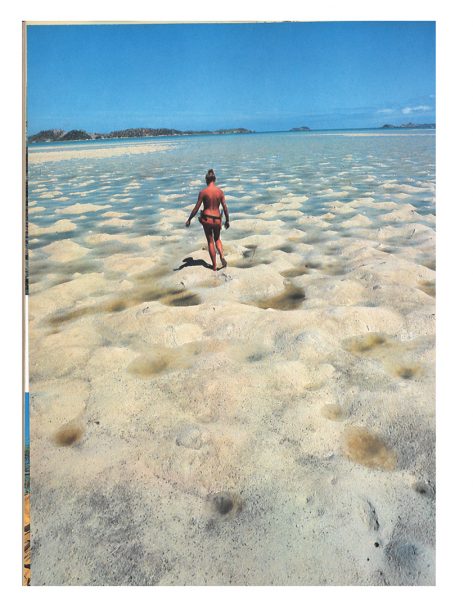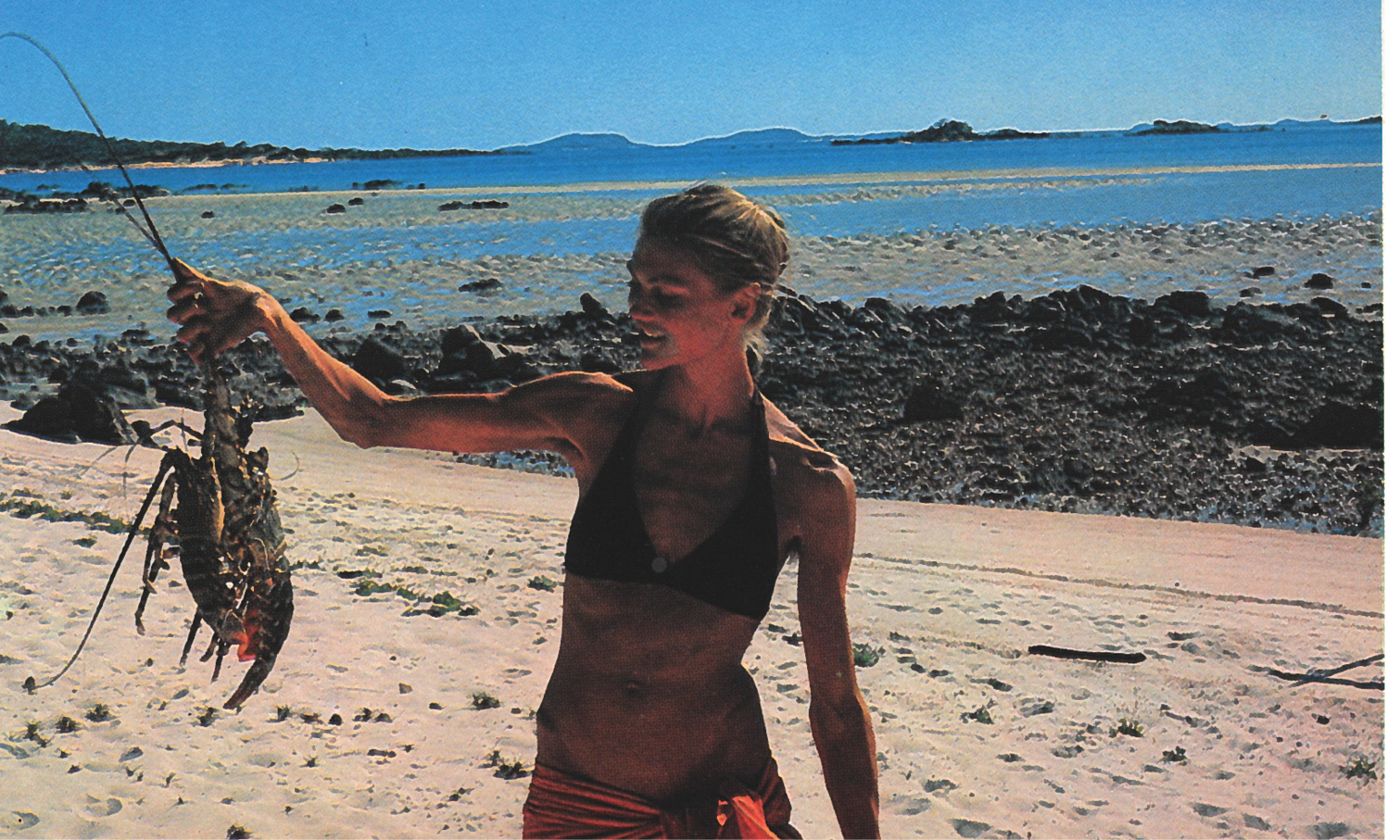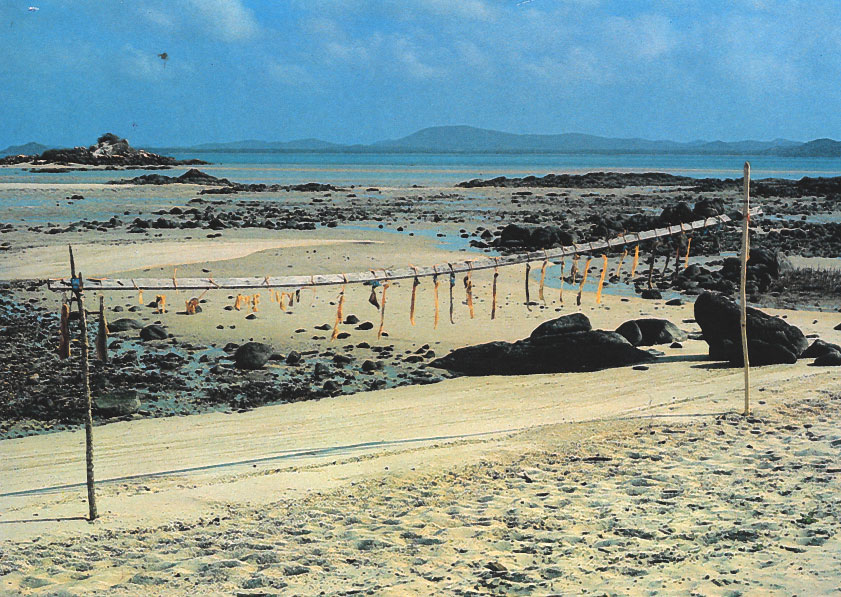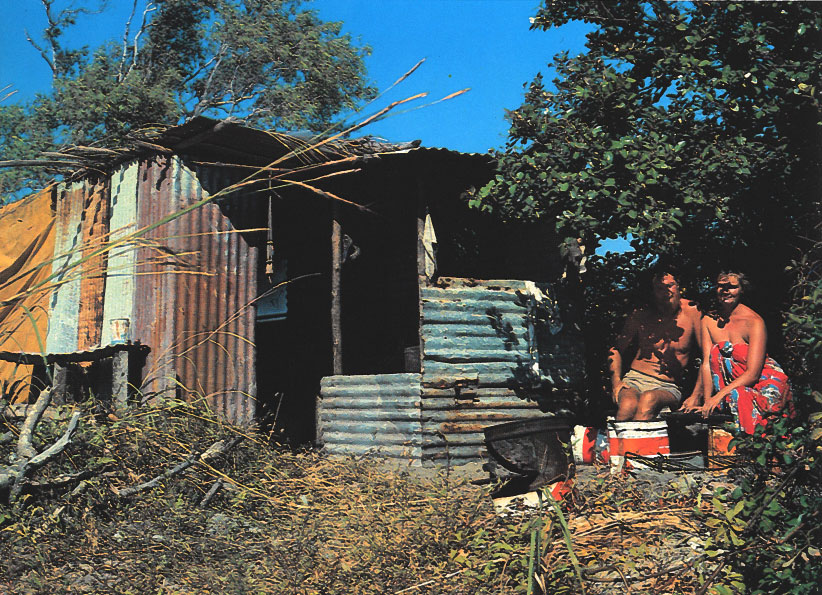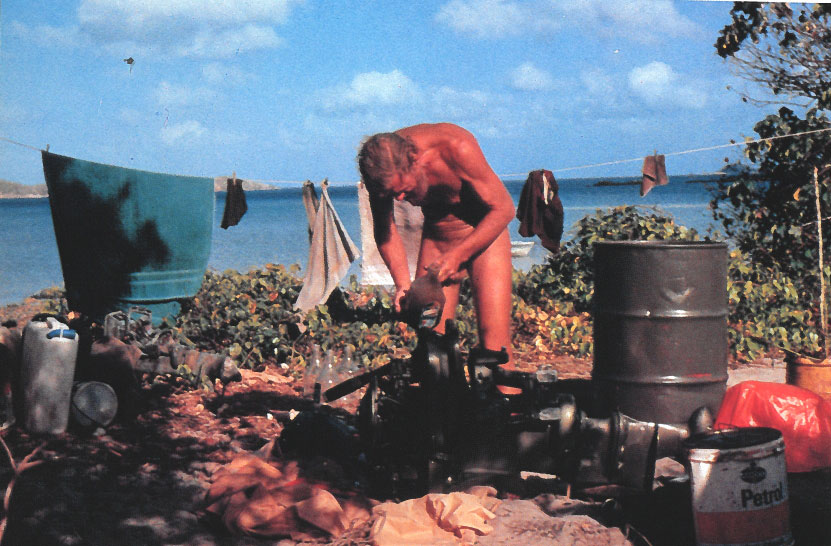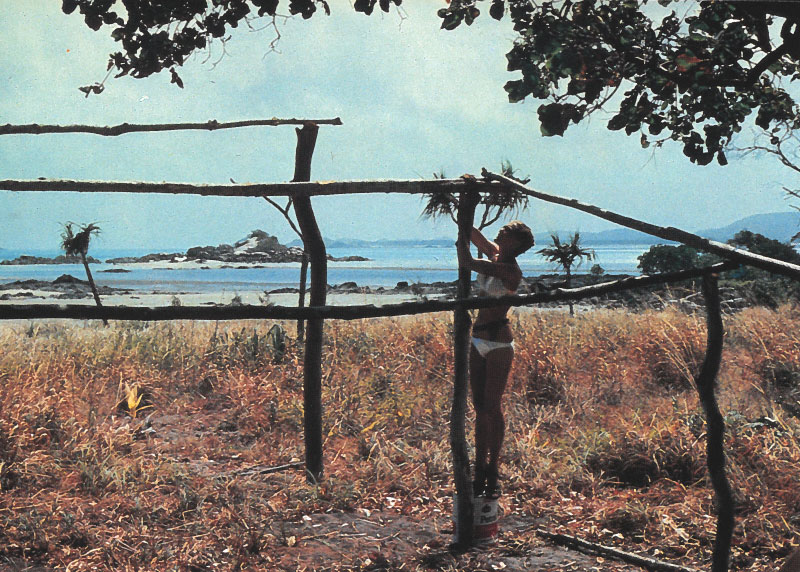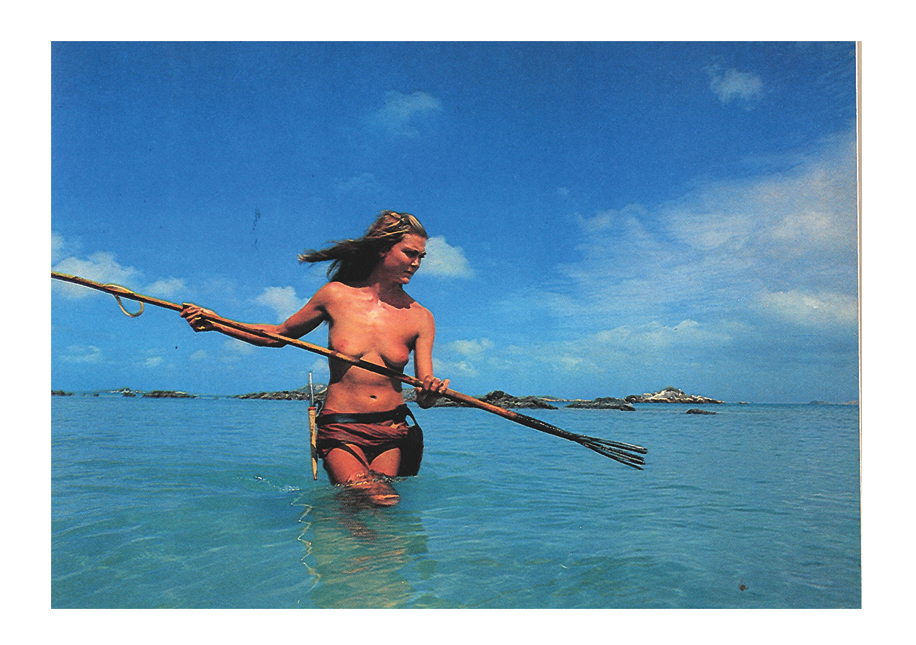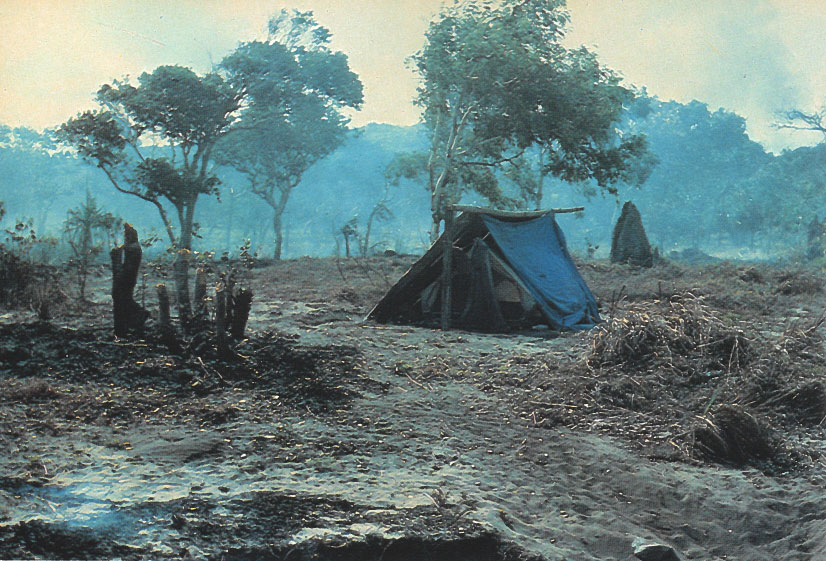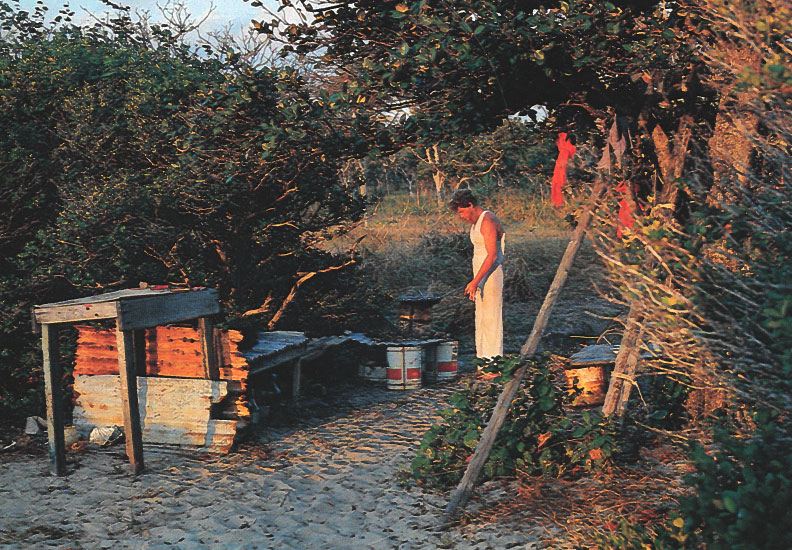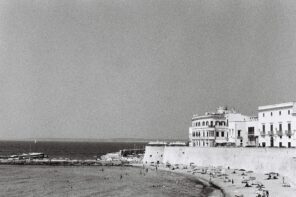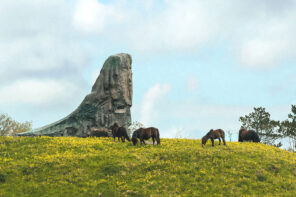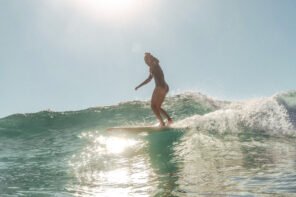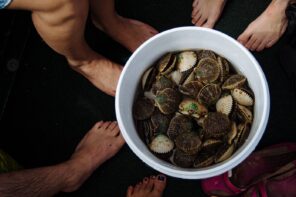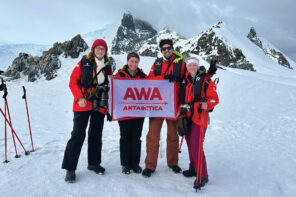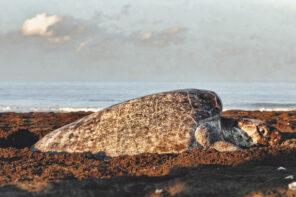Lucy Irvine responded to a classified ad that led to a year spent on an uninhabited desert island.
Was she prepared to be a castaway? Well, as a Brit, she wondered how many tea bags she’d need. Does that answer your question?
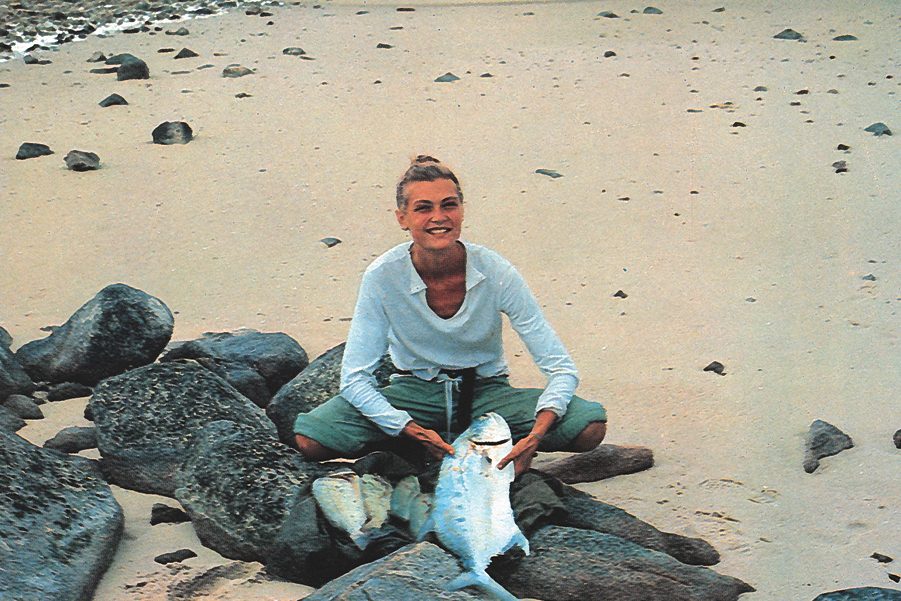
How does a person end up as a self-imposed castaway on an island?
Lucy Irvine: I don’t know how a person does it, I know how I did it. I was working at Inland Revenue, I believe the equivalent to the tax office or something like that or maybe it’s called the Internal Revenue Service in the US? Anyway, it was a pretty dull job. In the evening, I was a waitress to make better money and also being a bit unconventional. And during my lunchtime, I would go to the local library, and I was deliberately looking to learn more about travel and different places that I might be available to visit. I felt that I wanted to simplify my life. I seemed overwhelmed by choices. And so when I saw this advertisement in the newspaper which said, “Writer seeks ‘wife’ for a year on a tropical island,” I thought, “Well, that could fit the bill. That could be it.” I was really tired of so many choices and so many things. I wanted to simplify. That’s actually what I was after. And it’s what I got.
I felt that I wanted to simplify my life. I seemed overwhelmed by choices.
How were you notified and selected for this adventure?
Lucy: The person who posted the ad said that he’d had 300 applicants, I’m not sure if that’s true. It doesn’t matter. Maybe he did, maybe he didn’t. But I think he had a fairly routine set of questions that he asked. One of those I guess was, “What would you take to an uninhabited desert island?” I had a think, and the first answer was pretty silly, very light. I just said, “Teabags,” because I love tea, being British I love tea. And then I had a brainwave and I said, “String.” If you think about it, that’s a good one should you find yourself on an island. I guess he liked those answers because the next thing I knew I was on my way to meet him.
How did you know what to bring?
Lucy: We were told that there was some freshwater on the island. There was not. But we took actually very, very little. Retrospectively, the most useful thing we took with us was shark hooks for getting sharks out of the water. It was laughable. I mean, not funny ha-ha but maybe. Of course, being British, we took teabags. How could we possibly survive for a year on an uninhabited desert island without teabags? We ended up smoking them.
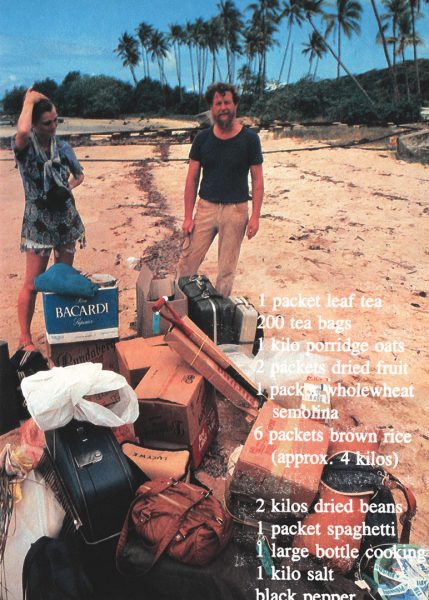
Diary June 7, 1983
Hurrah! Caught my first shark today, a baby Black Tip just the right size for a beginner. I went off on a lone fishing trip soon after breakfast and found a new place not far from camp. G was having a garden-planning morning. I left him tramping about on a flattish piece of ground near the creek, spade in hand and purposeful gleam in eye. It was, to use a well-worn but apposite phrase, a dazzlingly beautiful day, but I had no time to dawdle about poetically. The tide was on the way out and would not be back in again before late evening. The time for fishing was now. We had a very thin day foodwise yesterday and I was anxious to pull in a meal as soon as possible. For bait I used the back of a small parrotfish head leftover from last night’s meal. It did not smell too good, but at that moment there was nothing else to be had. The tide was not yet far enough out for collecting ‘cucaracias’, and it was just too far out for crabbing. If my smelly piece of parrotfish was totally disdained, I could always crack a few winkles. The new fishing rock I was trying is amazingly comfortable as regards rock furnishings. So much so that it is to be called Armchair Rock. Unfortunately the water around it is rather shallow at low tide and it cannot be reached when the tide is high, but this morning I managed to time it right. With the first cast I felt almost instantly the familiar tug of a parrotfish, but one so small it could not get its jaws properly round the bait. Either that or it was disgusted. I wound in the line and tidied up the bait. On an afterthought I added a juicy morsel of winkle to increase the allure. It did the trick. The same little parrot hooked himself on, no escape for him this time. But he really was embarrassingly small. I could imagine G’s indulgent expression if I walked back to camp with only that to show. He would probably say, quite genuinely, “Well done, at least you caught something.” To hell with that! Gambling on the off chance of something substantial passing by in pursuit of smaller fry, I used the whole head as bait, throwing it as far out as possible. Nothing to begin with. Then the line suddenly went slack. I did not know what was happening and started vaguely to pull in. All at once the thin line shot through my fingers, burning into the joints and I gave an involuntary yell. Luckily I had the stick handle of the line wedged between two rocks, otherwise the whole lot would have been lost. The taut-line was zooming around all over the place. I picked it up and pulled experimentally. I knew the fish could not be all that big or the line would have snapped at once. Gradually I started to haul it closer. A fine black fin broke the surface, confirming my suspicions that it was a shark. Alerted by my first cry, G was making his way along the beach towards the rock. He arrived at just the right moment to help finish the thing off. I had landed it without difficulty but was having trouble getting the knife to penetrate its thick skin, as it thrashed about furiously. ‘Lie still while I kill you, you bugger,’ said G as he stabbed the little shark through the back of the neck. Fried steaks for lunch, poached ‘fillets’ for supper. I was so pleased, and so was G.
How did clothes and clothing in general work when on the island?
Lucy: On the first day on the beach, I just threw everything off. It was hot. There was nobody else there. Nobody was going to see what we got up to. And he was my “husband,” so that was fine, and I didn’t really think very much of it. What was quite funny was that, as time went on, he began putting things back on because the mosquitoes and the sandflies get in all sorts of places you don’t want them to be. It ceases to be erotic quite early on. You stop thinking about sex all the time with somebody who’s naked when they’re naked all the time.
Who were Millicent, Oscar, and Bronzy on the island?
Lucy: You see, there weren’t any cuddly animals on the island. I’m very, very fond of animals, but there was not a dog, a cat, or a goat for hundreds of miles, no Robinson Crusoe luxuries. But we had these lizards that would come and stay around the camp, and I just named two of them and became friends. In fact, I named pretty well everything we had. And I named trees and I named a rock. And I named my rucksack—all these things just somehow people in my little world. Tom Hanks could relate. As for Millicent, when it came to the sexual side of our relationship, I think he would have found it much sexier if I wore clothes for some reason. So I ended up drawing them on and that’s where she [Millicent] comes in. Millicent was an invention, a character I played because I knew by then what kind of women would turn him on and I invented one for him and drew on stocking tops and…yeah, everything drawn on with charcoal from the fire.
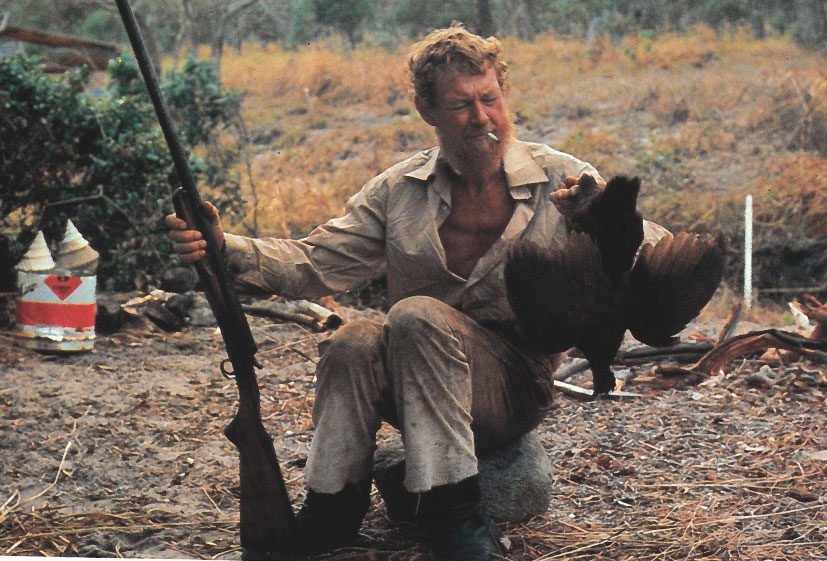
What did you find yourself thinking about with all the time on your hands?
Lucy: And that’s exactly the thing, you don’t have all the time on your hands. I was constantly thinking about how was I going to get the next meal? What state was the tide in? And when on earth would it rain next? And how could we get water or get a coconut down? Extremely practical things. Philosophy came later, retrospectively almost, because when we were there, it was far from a Blue Lagoon experience. It’s much more about grit, sand everywhere that you don’t want it, tremendous challenges about just how you’re going to stay alive.
Diary October 10, 1983
Rain! Glorious gurgling blessed and bountiful come-again-don’t-go-to-Spain rain! Dear Jesus Christ and God in Heaven and all you other Gods of the world and Powers that Be–thank you. Oh lovely lovely sweetest sound lemme get out so it can trickle right in my ear!
How did you end up leaving the island?
Lucy: I was sitting on a rock one day desperately trying to catch fish, and some natives came up. They were fishing and they saw me on this rock. In their culture it’s absolutely nothing for a woman to have nothing on her top, it’s perfectly normal. The girls there go around bare-breasted.
Anyway, so they found me and they instantly felt really sorry for him and me because I was thin. And the thing out there is big is beautiful, and the fatter the woman is, the better. So, I was really a poor kind of catch, but they realized what we needed and what we needed most was water. And they actually had a kind of a bidon—don’t know if you use that word—a water container in their boat. And they took me in the boat with them to another island where there was a pool of freshwater and that was absolutely marvelous. So they basically saved our lives.
Did you stay in touch following the island?
Lucy: Yes. It was extremely difficult because he basically didn’t want me to go. So it was actually quite difficult. But in the end, he said, “You’ve got your life to lead.” And by then I had found out more about him. He had five wives, nine children that he knows of, probably more. And fond though I was of him, and I was, but as more of a companion than anything else. I didn’t want to have children by him. I mean he wanted to have children too and he was very upset when I went, and that was very difficult for him. And I was sad that it had come to that.
Diary July 20, 1983
We lie awake for hours sometimes in the long night, close together and yet wrapped in our own private cocoons of thought; intimately linked in a way that can surely only be experienced by two individuals who so ardently long to hear in the silence just one thing: rain.
How would you describe your perspective on society after having spent so much time relatively alone?
Lucy: I don’t think I’ve really ever come back from the island in my head. I see typical Western society, if you like, as an interesting invention in which one can participate or not and to whatever degree you choose. It’s got scarier as the years have gone by, and we’ve seen globalization take over. Even here in Bulgaria, I’ve seen tremendous differences since the end of communism, when I moved here, to in the last 12 years when I’ve seen new commerce arrive in a big way. And our lifestyles are dictated to us by what’s in the supermarket, giving you the impression that you should have that. Whereas actually we can all choose, but we all tend to maybe do what’s easiest and do what everyone else does. You take nothing for granted.
One piece of advice that you might share for anybody looking to kind of “get away from things.”
Lucy: Just do it and do not take the internet with you. Because if you do, you’re just going to be looking at yourself all the time rather than living the experience.
At the time of this interview, Lucy was currently undergoing treatment for cancer. Learn more about her and her organization The Lucy Irvine Foundation Europe (L-I-F-E), which rescues, rehabilitates, and supports animals, at lucyirvinefoundationeurope.org.
